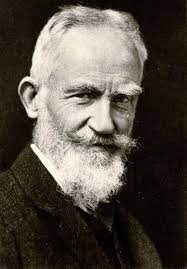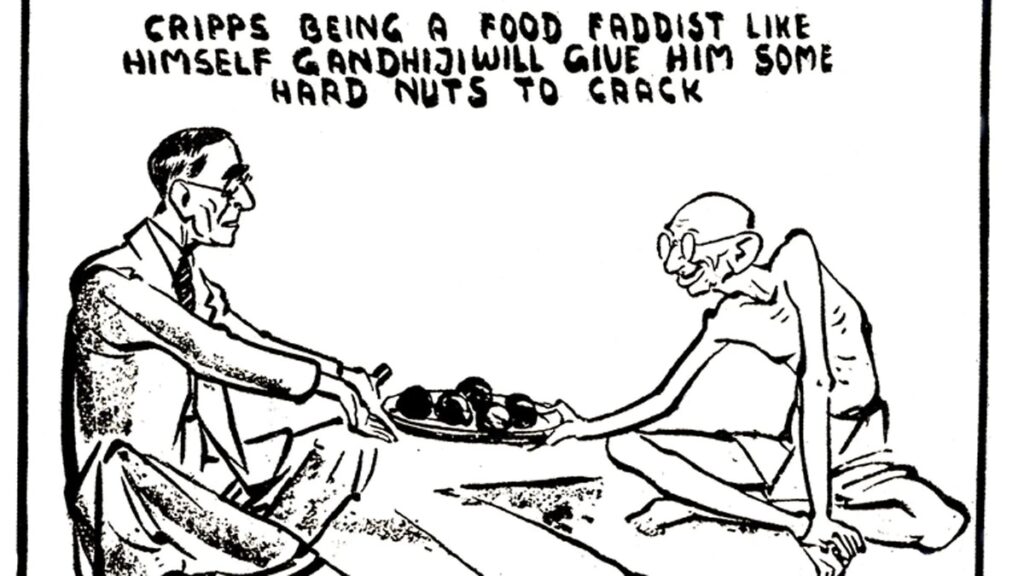
William Shakespeare was pointing to the cruelty that mankind meted out to animals, while writing these lines in the second part of his historical play, Henry VI, based on the life of the 15th century King of England:
Thou never didst them wrong, nor no man wrong;
– William Shakespeare, Henry VI, Part II
And as the butcher takes away the calf
And binds the wretch, and beats it when it strays,
Bearing it to the bloody slaughter-house,
Even so remorseless have they borne him hence;
And as the dam runs lowing up and down,
Looking the way her harmless young one went,
And can do nought but wail her darling’s loss.
Cruelties in the dairy industry have not decreased in the 400 plus years since Shakespeare wrote those lines, where he makes his vegan intentions very clear. On the other hand, advances in technology, and the mindless and scientific precision that it brings, have only magnified the brutality to unimaginable levels.
This post is on my journey of becoming a vegan, which is still a work in progress. But, let me start with how I became a vegetarian. I suppose, all human beings are born vegetarian. It continues to be so for at least a few months or years. I continued to be vegetarian, I believe, until I was a few years old, sticking to curd and rice as my favourite food. One of those who did not look forward to seeing a nonvegetarian dish at the table. So much so, my mom used to joke that I must have been a Tamil Brahmin in my previous birth. I don’t remember when I started eating non-vegetarian. But, even when I started having fish and meat, I rarely relished it. I always felt deep within that I was a vegetarian, but was making exceptions.
It was only after I started working in Chennai in the mid-1980s that I gained a reasonable proficiency in cooking non-vegetarian food. My friends savoured whatever I was dishing out. Those days I bought meat and fish in ready to cook packets. It was only after moving to Mumbai that I first started buying chicken directly from butchers. This showed me how chicken was being prepared. Typically, whenever I bought chicken, the butcher extends his hand into the coop, and catches the first one he could get hold of. It would be thrown into something like a wet grinder where its cackling stops when the machine is switched on. All this within eyesight of the other terrified chicken, who can hear the wails of their brother chicken and the silence that inevitably follows. When the hand goes inside the coop, you could see them huddled together at the farthest end, each one hoping and praying not to become the next victim – a vain hope that can be sustained only for a few more minutes.
Do animals know when their fellow ones are being killed? I believe so, going by videos available online. Animals in a narrow metal corridor, in machine line fashion, trying in vain to turn back when they realized that the one in front has gone silent, soon after the crushing sound of falling metal.
It was around this time that I watched Schindler’s List, Steven Spielberg’s gut-wrenching movie on the holocaust. The prisoners arriving in Auschwitz by train seem to realize that the dark smoke billowing out of the chimneys and its sickening metallic smell are of human flesh.
The movie also had a scene where, when the Nazi trucks arrive to take away all the prisoners, small kids scamper looking for cover. One kid, a bit slow, jumps inside a toilet only to see that there is no standing space around the sides of the shit dump, and the shit hole is now too high for him to get out. This heart-rending scene reminded me of the huddled chicken at the farthest end of their coop. The fear of the chicken was no different from that of the kids.
I started seriously thought about becoming a vegetarian again. Implementation took time. When it came, it was a sudden impulsive one, in August 2001, following a lunch at Taj Coromandel, Chennai. It has been nineteen years.
Soon after that, from October 2001, I was in Switzerland for six months as a Visiting Fellow at the Bank for International Settlements (BIS). I met other vegetarians there, including Elizabeth Striegel, Head of HR. She was from Munich. A classical music afficionado, she told me that she had been a vegetarian for eighteen years. I was not sure whether my vegetarian vows would last that long.
A common issue we had was that the BIS Canteen did not have an exclusive vegetarian menu. Even when something was pointed to as vegetarian, it would often have julienned fish or ham, which you had to clarify was not vegetarian in your dictionary. Even salads which looked vegetarian often had these elements. The ladies behind the counter were sympathetic, but helpless. After experimenting for a few months, I started going back to my service apartment for a quick homemade lunch. When there were only a month or two of my stay left, the BIS introduced a separate vegetarian menu. I suspect this was the initiative of Mr. (later Sir) Andrew Crockett, General Manager of the BIS, from 1994 to 2003. In our meeting, Mr. Crockett told me how in his tenure the number of non-Europeans working at the BIS had increased from seven or eight to about fifty, out of around 500 employees.
I remained a vegetarian ever since only to experiment with eggetarian for a few years in between. I have finally given up eggs also and am in the process of becoming a complete vegan. This decision was deeply influenced by several twitter videos on animal abuse in dairy farms. This journey of becoming a vegan is more difficult. I have been using Soya Milk and Almond Milk, but these are not always available. Vegan substitutes for curd are also not easily available. And this is also difficult to insist upon, while visiting friends and dining out. There are hardly any vegan restaurants around, and the few that offer vegan options tend to be very expensive.
Notwithstanding my vegetarianism, there were two occasions when I cooked non-vegetarian food. The first was just before leaving Basel, for a group of friends, including Bengt, a Swede now settled in Thailand, Stephen, a Brit, Andrew from MAS, Singapore, and Yoshi from Japan.
The second occasion was more recent, in Mumbai, when I hosted a meeting of the Book Club I was a member of. On both occasions, I had a difficult job, having to cook without being able to taste. But, appreciation and demands for the recipe, seems to indicate that my non-veg dishes were a hit. But, I don’t think I will repeat this again.
People have asked me, why I became a vegetarian. Was it animal rights, religion, or was it something else? My friend, Abhijit, calls it self-imposed torture. Dr. Y.V. Reddy, my big boss, meeting Reserve Bank officers based in Basel over dinner, was surprised. Only a few months earlier, he had come home for dinner, where Abhijit and his then student, Esther, were also there. I had cooked chicken and fish. Reddy commented that new converts tend to be more religious.
My vegetarian decision was quite impulsive, under the weight of cumulative influences over the years – my own childhood vegetarianism, vegetarian friends, and having had pets for most of my childhood. Most important was the conviction that if one could survive without being responsible for the loss of another life, that way of life was more ideal.

It helped that several well-known public figures from various fields were known vegetarians. Online sources tell me that this included Confucius, Apollonius, Plutarch, Plotinus, and Pythagoras, from the ancient era, to Leonardo da Vinci, William Shakespeare, Alexander Pope, Voltaire, and Newton in medieval times. In more modern times, there was Mahatma Gandhi, Rabindranath Tagore, Leo Tolstoy, Albert Einstein, Albert Schweitzer, Aldous Huxley, Paul McCartney, George Harrison, Isaac Bashevis Singer, and Ringo Starr, among many others. In more recent times, we have APJ Abdul Kalam, Christine Lagarde the ECB President, Bob Marley the singer, Martina Navratilova the tennis player, Irrfan Khan the late actor, and Virat Kohli and Virender Sehwag, cricketers who I admire.
And there were all those influential quotes. Socrates who said, “Nothing will benefit health or increase chances of survival on earth as the evolution to a vegetarian diet.”

Bernard Shaw: “A mind of the calibre of mine cannot derive its nutriment from cows.”
Shaw again: “The average age (longevity) of a meat eater is 63. I am on the verge of 85 and still work as hard as ever. I have lived quite long enough and am trying to die; but I simply cannot do it. A single beef-steak would finish me; but I cannot bring myself to swallow it. I am oppressed with a dread of living forever. That is the only disadvantage of vegetarianism.”
Shaw yet again, at his acerbic best: “I choose not to make a graveyard of my body for the rotting corpses of dead animals.”
But, those who oppose vegetarianism and veganism as nothing but fads have nothing much to offer by way of logic. One friend argued that vegetarianism offers only limited choice of dishes. My reply was that give me any vegetable and I can show you six different ways of cooking it. And some of these offer non-veg like flavours and tastes, in a much more healthy way.
One main argument is that plants are also living beings. So, vegetarianism also involves eating life. On the other hand, I think that eating fruits and vegetables, which contain seeds, is a natural process, which propagates plant life by aiding their reproduction. From not eating fellow humans to not eating other living beings, is expanding the scope of exclusion to cover other living beings. This is just another step forward. It all finally boils down to perceptions. An acquired world view.
But then, this post is not about entering into a debate over vegetarianism or veganism. It is about my journey towards being a vegetarian, and a continuing journey towards becoming a vegan.
I am enjoying the journey.

![]()